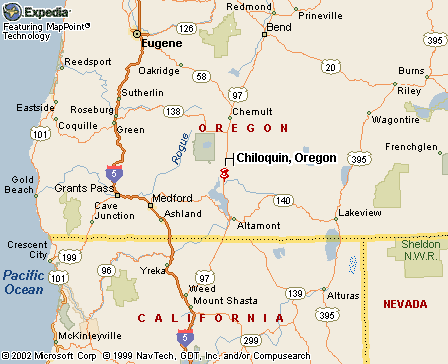|
|
Canku Ota |
|
|
(Many Paths) |
||
|
An Online Newsletter Celebrating Native America |
||
|
December 15, 2001 - Issue 51 |
||
|
|
||
|
Lessons of Heritage, Language Intertwine for Elder and Pupil |
||
|
by Kara Briggs The
Oregonian December 9, 2001
|
||
|
This
poster and it's interpretation can be found at the Klamath
Web Site
|
|
CHILOQUIN -- "Bol'ooqs," Stephanie Ohles reads from the Klamath language dictionary then watches as elder Neva Eggsman scrunches up her face in disgust. "My mother-in-law used to love to eat that," the 93-year-old Eggsman says of the word for duck embryos, once a delicacy in the Klamath and Modoc tribes. The two share the intimate laughter of women who are closer than friends. Eggsman is teaching the Klamath language to Ohles and another apprentice, who in turn teach it to other families. But Ohles, a 32-year-old art school graduate from Northeast Portland, is learning more than vocabulary and grammar from Eggsman. Ohles is finding in the elder's lessons what it means to be a Klamath. Ohles moved to Chiloquin, her parents' hometown, three years ago. She had not spent much time in the Southern Oregon town since her grandmother, the last Klamath speaker in her family, died when she was 6. She found work in the tribe's language program. At first, Ohles was businesslike with Eggsman, not understanding all that was expected of her by the tribal elder. Then her teacher explained. As a young woman in the 1920s, Eggsman, a Modoc, married a Klamath man and learned to speak Klamath out of respect for his elderly mother. Now, Ohles is obliged to give the same degree of respect to her elder's lesson and to help Eggsman continue teaching for as long as she can. "This isn't a day job. It's a life job," Ohles says. "It's like a marriage." Ohles gives Eggsman her arm as they walk the long hallways of the Klamath Tribes' headquarters. She refills the elder's coffee cup. When Eggsman has a story, Ohles listens. The stories flow in words that trigger memories, many of them sad memories of the 1918 flu epidemic, of tuberculosis, of termination in 1952 and of land that was swindled away. In 1986, when the Klamath Tribes won back federal recognition, Eggsman and several other elders began documenting and teaching the language. As the years passed, many of the elders died; apprentices came and went with funding. Now Eggsman alone teaches Ohles and Bobby David, 67. A $1 million grant from the U.S. Department of Education guarantees three more years. The apprentices are beginning to hold their own in conversation with Eggsman. In October, they began reading the 4-inch thick dictionary, written by a University of California linguist in the 1950s. They are nearing the end of entries for the letter C. Ohles leans over Eggsman's shoulder to see her book, but instead notices the elder's tired face. It's time for lunch, the younger woman says. But the elder -- knowing how much of this language is still inside her and how much the dictionary missed -- presses on with the next word.
|
||||||
|
|
||
|
|
||
| Canku Ota is a free Newsletter celebrating Native America, its traditions and accomplishments . We do not provide subscriber or visitor names to anyone. Some articles presented in Canku Ota may contain copyright material. We have received appropriate permissions for republishing any articles. Material appearing here is distributed without profit or monetary gain to those who have expressed an interest. This is in accordance with Title 17 U.S.C. section 107. | ||
|
Canku Ota is a copyright © 2000, 2001, 2002 of Vicki Lockard and Paul Barry. |
||
|
|
|
|
|
The "Canku Ota - A Newsletter Celebrating Native America" web site and its design is the |
||
|
Copyright © 1999, 2000, 2001, 2002 of Paul C. Barry. |
||
|
All Rights Reserved. |
||


